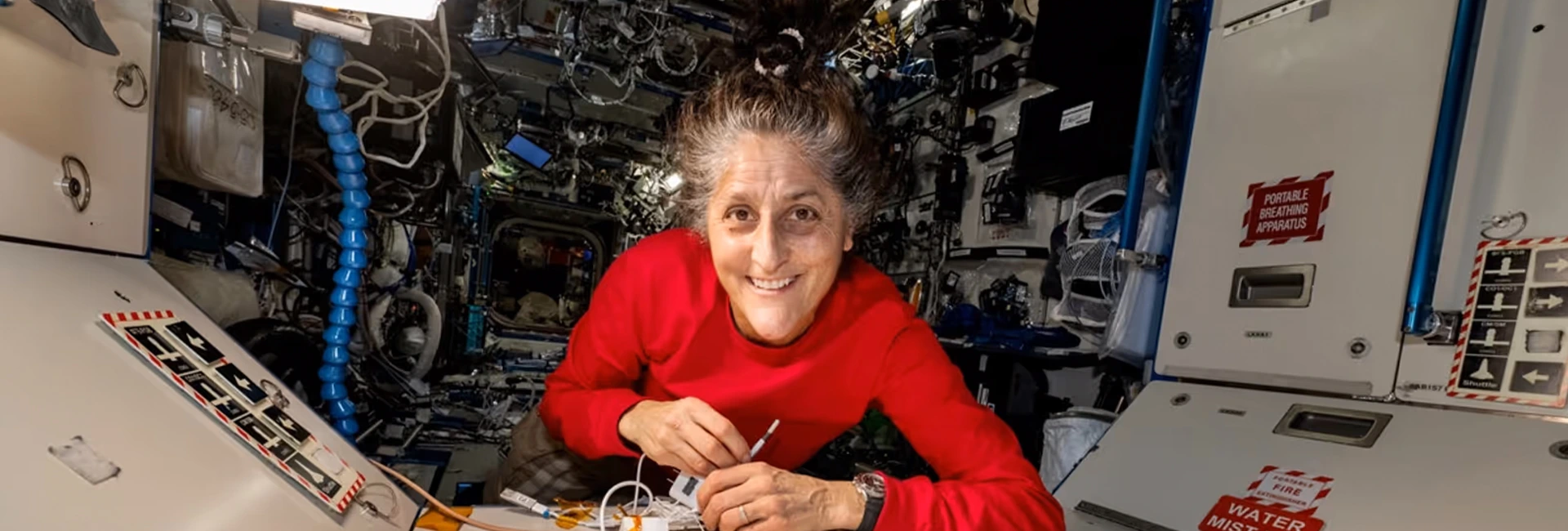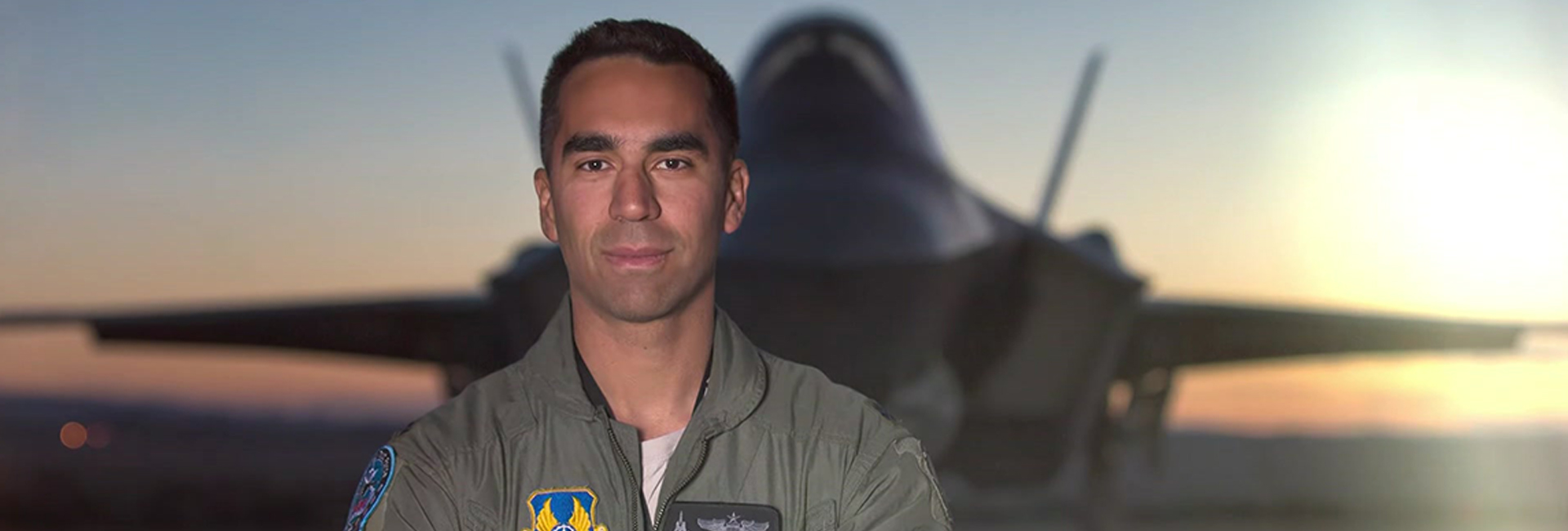(January 1, 2025) In 2025, the world’s eyes are set on the skies, eagerly awaiting the return of astronaut Sunita Williams and her colleague Barry Wilmore from the International Space Station (ISS). On June 5, 2024, Sunita made history as the first woman to serve as a pilot on a flight test of an orbital spacecraft when the Starliner launched into orbit. Williams embarked on this mission initially slated to last only eight days. However, technical challenges with the Boeing Starliner spacecraft have delayed her return multiple times, stretching the mission to over 250 days. Reflecting on these challenges, Sunita shared in an interview from space, “We’re professional astronauts; we were trained for every contingency.” Meanwhile, in her ancestral village in Gujarat, prayers are on as villagers hold daily ceremonies for her safe return.
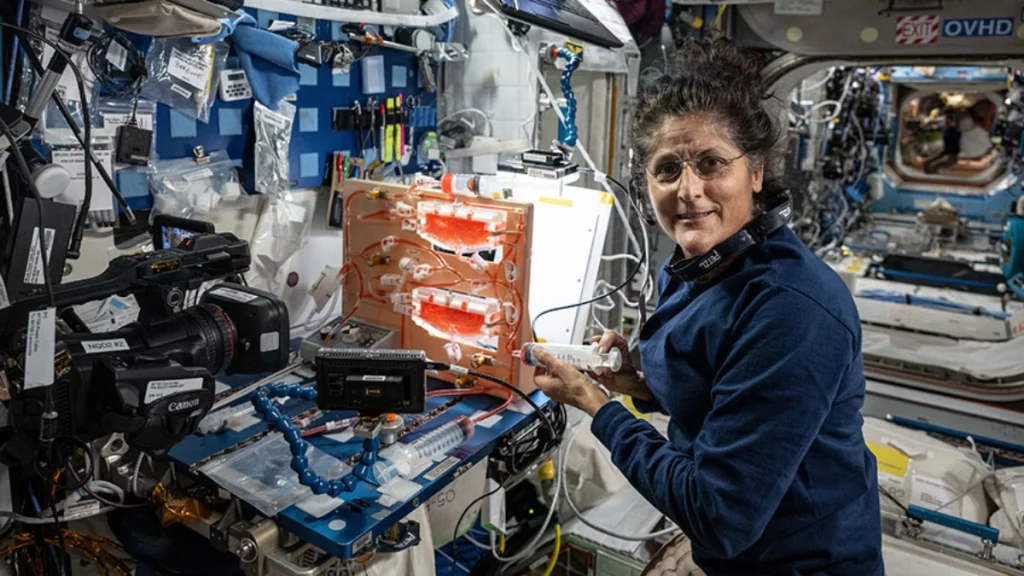
This mission is proving to be more than just another milestone in Sunita’s illustrious career. It embodies the highest levels of dedication, resilience, and the ability to inspire others in the face of challenging circumstances, further solidifying her legacy as one of the most celebrated astronauts of our time. With a positive outlook, she and her team demonstrate how to maintain high spirits when events don’t go as planned. Undeterred, Sunita even described the ISS as ‘a happy place’.
The extended mission has also provided a unique opportunity for Sunita and her team which comprises Wilmore and other crew members to engage in additional research and experiments, contributing valuable data to ongoing studies in space medicine, material science, and climate observation.
Insights from the space
From her unique vantage point aboard the ISS, Sunita has shared profound reflections on life and humanity.
We take life a little too seriously on Earth. We get aggravated by the littlest things. This is our one big planet, our one big place to live. We all should just get along.
Her words reinforce the importance of unity and harmony, and serves as poignant reminder of our shared duty to cherish the planet we all call home.
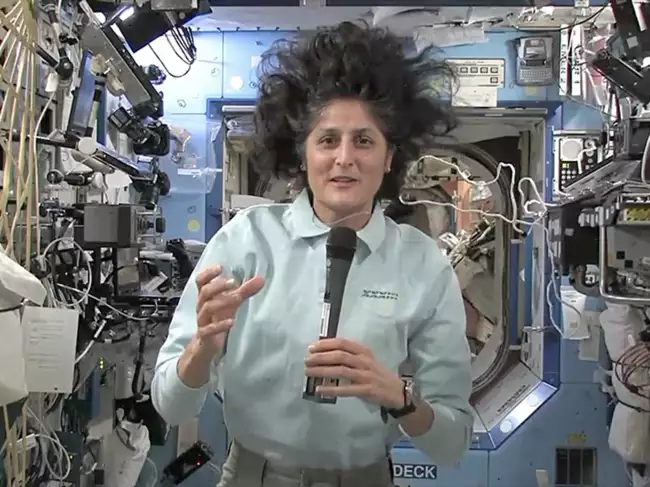
The Indian-origin astronauts experiences also highlight the beauty and fragility of Earth. She frequently photographs the planet, capturing breathtaking views of landscapes, oceans, and weather patterns. These images and her words inspire a sense of wonder and responsibility among her global audience.
Her passion for environmental sustainability extends beyond her reflections. Sunita often advocates for the need to use science and technology to address pressing global issues, emphasizing that solutions to Earth’s challenges can come from the lessons learned in space.
Taking setbacks on stride in the extended mission
Reflecting on the emotional impact of the delay, she shared in an interview, “When you see your ship flying away, it’s a little heart-wrenching….and that’s where we wanted to be; in that spacecraft, coming back home. But the decision was made and it was a great decision. We stand by our leadership.” Despite the setbacks, Sunita has continued to always look happy in all the video messages she keeps on sending on important occasions from the space.
Life aboard the ISS is both rigorous and awe-inspiring. Her daily routine includes conducting scientific experiments, maintaining equipment, and staying physically fit. Yet, Sunita finds time to enjoy simple pleasures. “I write a journal, take pictures, and watch shows like All Creatures Great and Small while riding the bike. There’s always something to do up here,” she revealed, highlighting the balance between work and reflection in space. She and her crew recently celebrated Christmas in space, sharing videos that have captured people’s attention and sparked joy.
Although Sunita and Bruce could not return, they have been receiving supplies at regular intervals to ensure they are well-fed. The most recent supply shipment included Christmas hats and other festive decorations, allowing them to enjoy a touch of holiday spirit with a feast in orbit.
There were some speculations about Sunita’s health but she refuted the rumours and shared her fitness routine from the space. Her adaptability has earned admiration not just from her colleagues but also from countless people following her journey. Aboard the ISS, she and her crewmates also tackle unexpected challenges with camaraderie and humour, creating the spirit of teamwork in extreme environments. “When you trust your team, even the toughest days become manageable,” Sunita once said, reflecting on her enduring partnerships during missions.
A multicultural foundation
Born on September 19, 1965, in Euclid, Ohio, Sunita Lyn Williams was raised in a household that celebrated diversity. Her father, Deepak Pandya, hailed from Jhulasan, a small village in Gujarat, while her mother, Ursuline Bonnie Pandya, was of Slovenian descent. This rich cultural heritage deeply influenced Sunita’s worldview and aspirations. Sunita often speaks about her father’s role in connecting her to Indian traditions. During her special Diwali message from space when the festival of lights was celebrated at the White House, she shared:
Growing up in a multicultural household where our parents encouraged us to seek opportunities and reach for the stars was truly a gift.
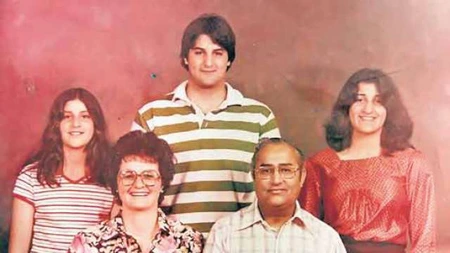
Sunita Williams with her parents and siblings
A pioneering journey to the stars
After graduating from Needham High School in Massachusetts in 1983, Sunita earned a Bachelor’s degree in Physical Science from the United States Naval Academy in 1987 and later pursued a Master’s degree in Engineering Management at the Florida Institute of Technology. These achievements marked the beginning of a distinguished career in aviation and space exploration.
As a Naval Aviator, she accumulated over 3,000 flight hours in more than 30 different aircraft types, contributing to operations in the Mediterranean, Red Sea, and Persian Gulf. Her exceptional performance led to her selection by NASA as an astronaut in 1998.
Sunita’s first space mission came in 2006 aboard the Space Shuttle Discovery, as part of Expedition 14 to the ISS. Over her career, she has conducted seven spacewalks, totalling over 50 hours, setting records for female astronauts. Her dedication and skill have earned her a place among the most accomplished figures in the history of space exploration. She is also the first to do a marathon in space.
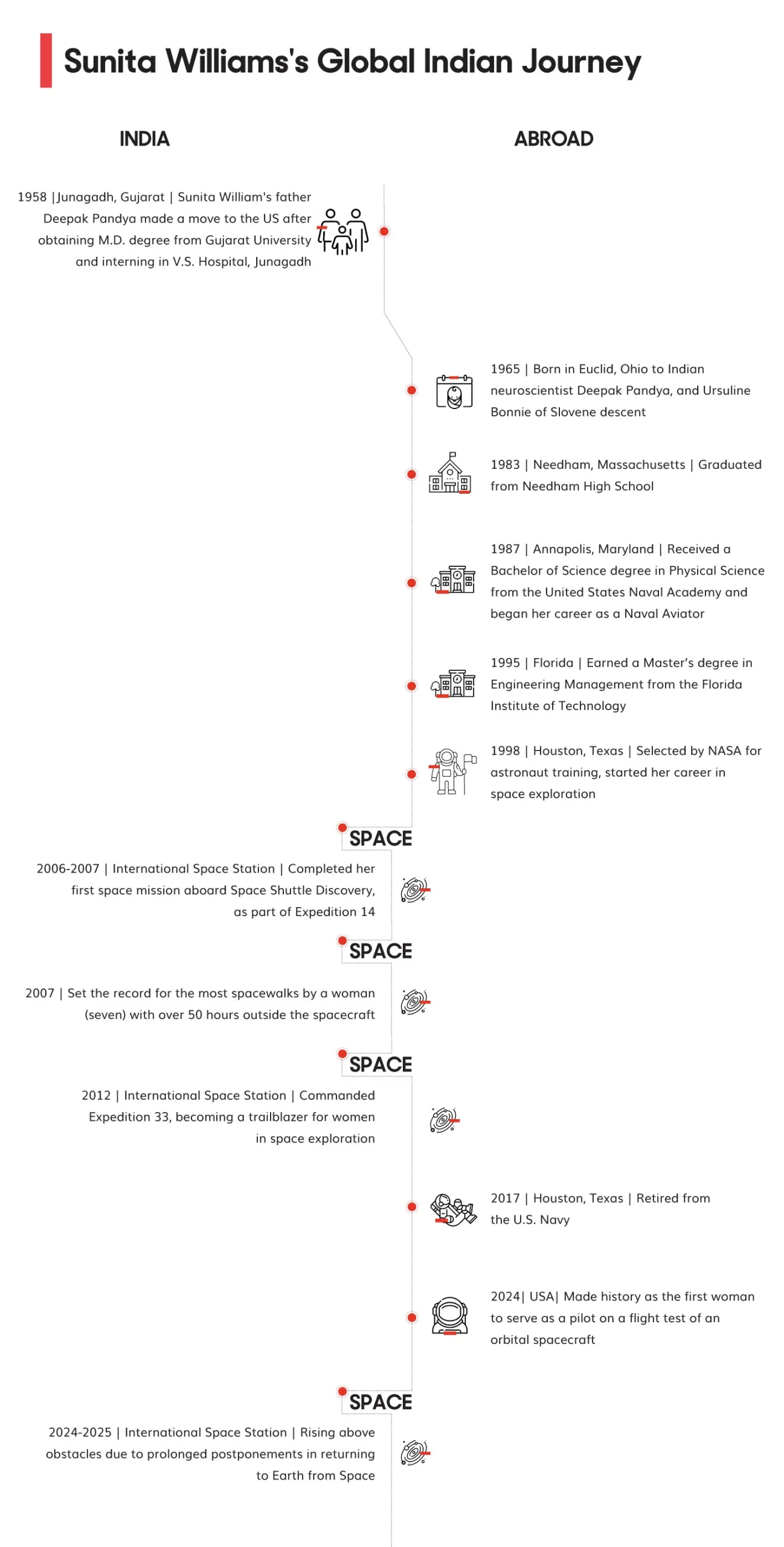
Roots in Gujarat
Sunita’s connection to her ancestral village of Jhulasan in Gujarat is a source of pride and inspiration for people of India. The small village of 7,000 people, steeped in tradition and history, takes immense pride in its ties to the astronaut. Villagers hold daily prayers for her safe return, keeping an oil lamp burning as a symbol of hope. For her 59th birthday, the community organized a space-themed exhibition to honour her achievements.
Sunita’s visits to Jhulasan in 1972, 2007, and 2013 were marked by warm celebrations. The village welcomed her with processions and heartfelt hospitality. During one of her visits, she donated funds to a local school, which now displays a photograph of her grandparents in its prayer hall. Such gestures have strengthened her bond with the community, and her success continues to inspire young minds in the region. She has given several lectures to students of India, Slovenia and internationally to inspire young minds.
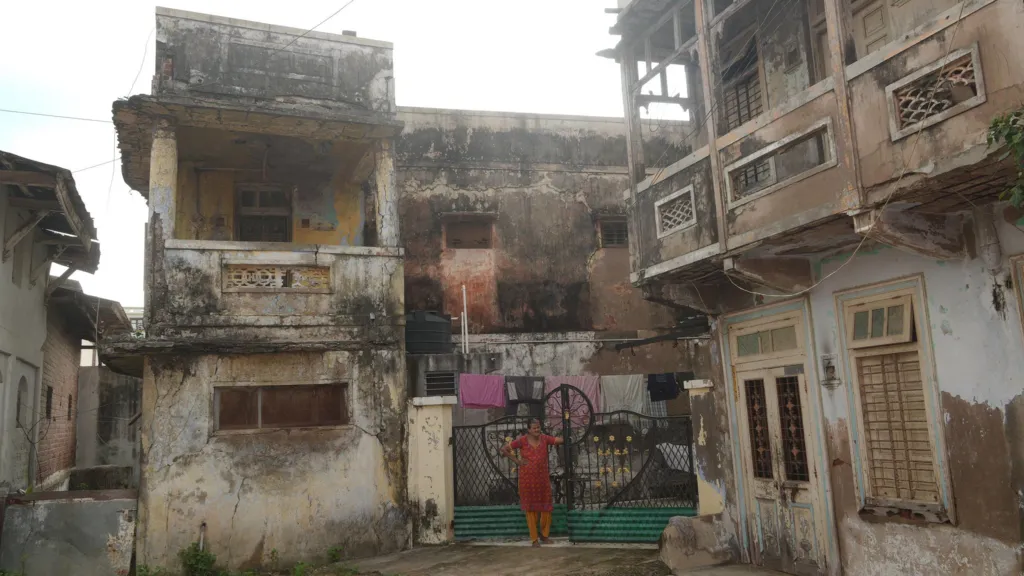
Sunita Williams’ ancestral home in Gujarat | Photo Credit: BBC
Symbols of heritage in space
Sunita’s cultural heritage remains an integral part of her identity, even in space. She has carried items reflecting her Indian and Slovene ancestry aboard her missions. In December 2006, she carried a copy of the Bhagavad Gita to the International Space Station. Later, in July 2012, she brought a symbol of Om and a copy of the Upanishads to space. In another occasion Williams took the Slovenian flag, a samosa, and Carniolan sausage to space, honouring her Indian and Slovenian heritage.
Beyond personal symbolism, Sunita’s presence in space also highlights the importance of international collaboration. The ISS itself stands as a great example of global cooperation, housing astronauts from various countries working towards shared goals in science and exploration.
A legacy of education and inspiration
Sunita’s impact extends beyond her professional accomplishments. Schools and institutions in the United States and India bear her name, reflecting her influence as a role model. In Needham, Massachusetts, an elementary school named after her inspires young students to dream big and pursue science. Her engagements with students, whether through speeches or personal interactions, highlight her commitment to fostering a love for exploration and learning.
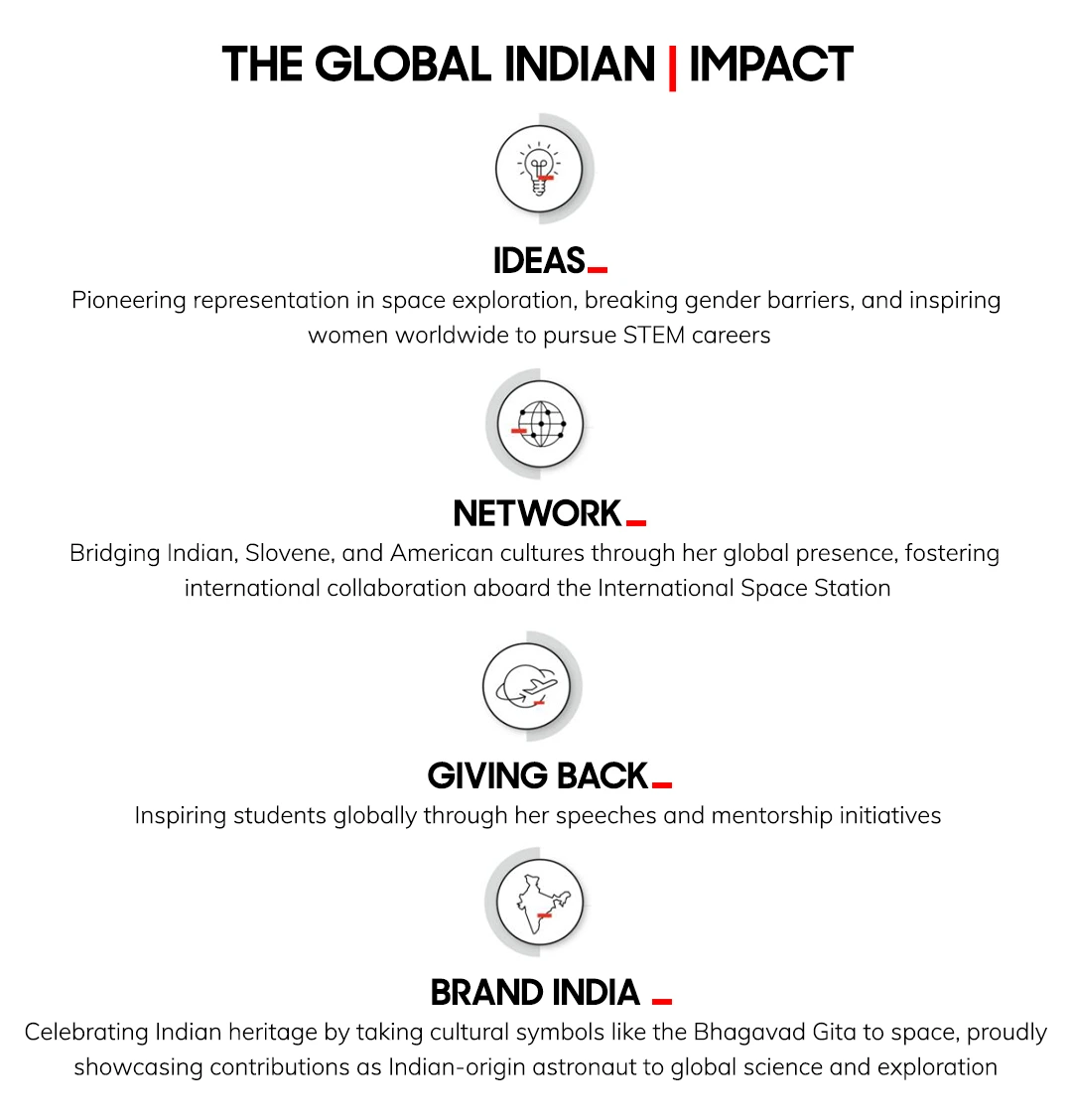
Her contributions to science and exploration have been widely recognized not only in the U.S. but also in India and Slovenia. In India, Sunita received the Padma Bhushan, India’s third-highest civilian honour, in 2008. She was also awarded the Sardar Vallabhbhai Patel Vishwa Pratibha Award, becoming the first non-Indian citizen of Indian descent to receive this accolade.
Awaiting a hero’s return
As the world awaits Sunita Williams’ return, her legacy continues to grow. From the prayers in Jhulasan to the admiration of students in Needham, her journey represents the triumph of perseverance, curiosity, and a deep connection to one’s roots.
When Sunita Williams lands back on Earth, she will bring with her not just the experiences of an extended mission but also a renewed belief in the unyielding human spirit. Her life reminds us that reaching for the stars is full of challenges but true success is claimed by those who face them with bold optimism and an unyielding determination to evolve.
- Read more fascinating stories
